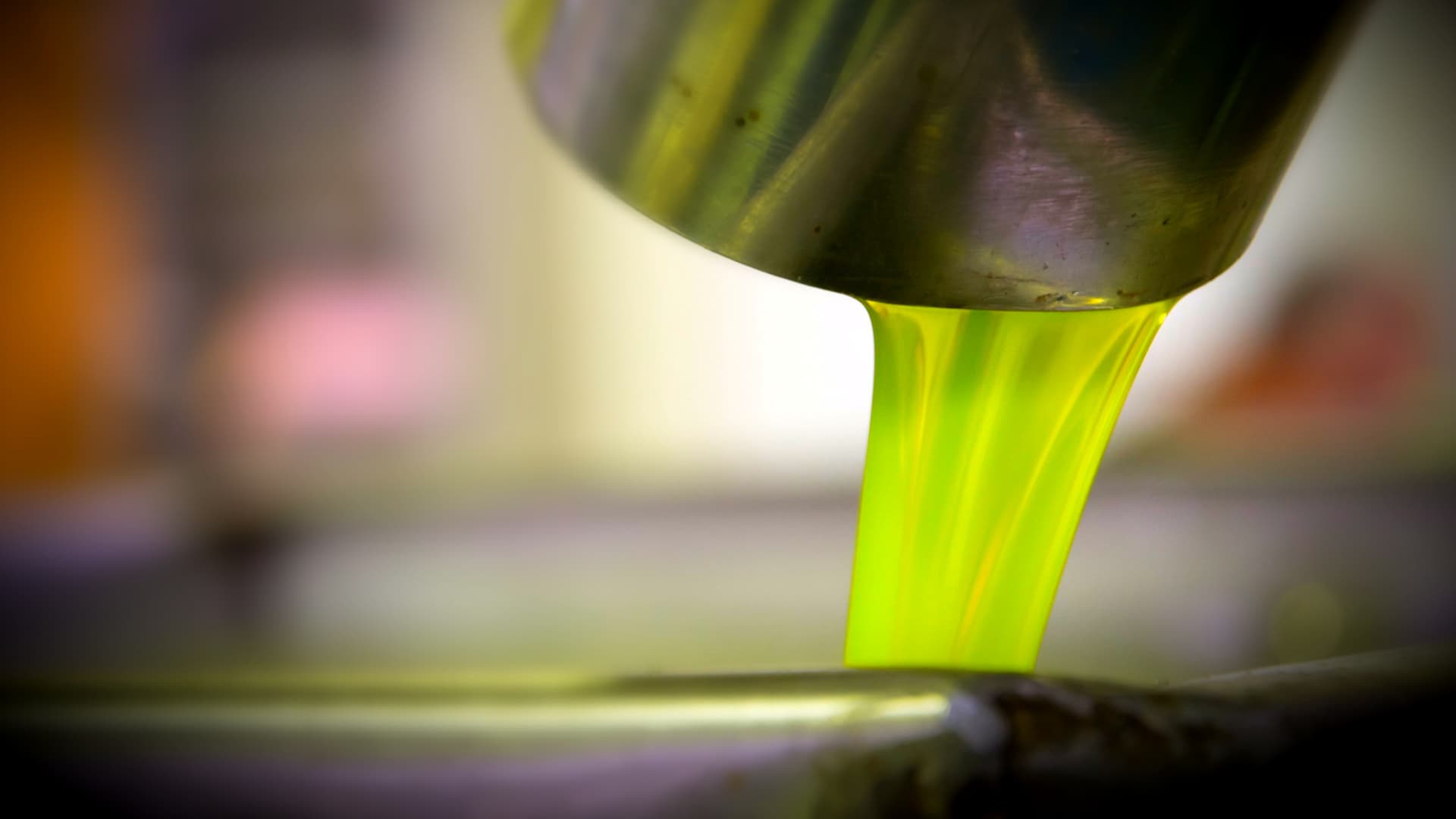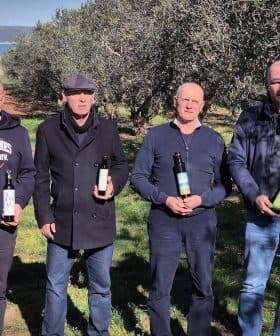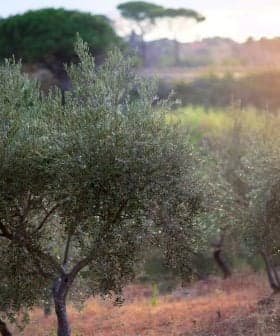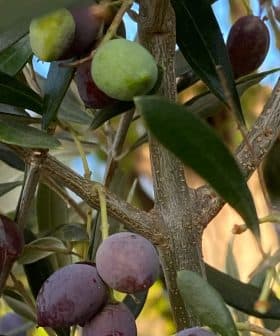Study Reveals Therapeutic Properties of Extra Virgin Olive Oil Polyphenols on Childhood Cancer

Researchers from multiple universities have conducted a study on the potential of oleuropein and hydroxytyrosol in treating neuroblastoma, a pediatric cancer. The review highlights the antioxidant properties of these compounds found in the Mediterranean diet and olive oil, which could enhance cellular defenses and reduce oxidative damage in neuroblastoma cells. Oleuropein and hydroxytyrosol show promise in inducing cell death, reducing side effects from conventional treatments, and countering tumor dormancy, suggesting potential for future research and clinical applications in pediatric oncology.
A joint study carried out by researchers from the universities of Castilla-La Mancha, Porto, Lisbon and Palermo has analyzed the therapeutic potential of oleuropein and hydroxytyrosol in treating neuroblastoma, a cancer affecting young children.
The review emphasizes the role of the Mediterranean diet and olive oil, which contain both polyphenols, underscoring their antioxidant properties, which could bolster cellular defenses and mitigate oxidative damage in neuroblastoma cells.
Additionally, oleuropein and hydroxytyrosol are shown to induce apoptosis (cell death), reduce side effects from conventional treatments and counteract tumor dormancy as a resistance mechanism, suggesting promising avenues for future research, especially in vivo studies.
See Also:Health NewsNeuroblastoma is a challenging pediatric cancer that primarily affects children aged 17 to 18 months. It arises from neural crest cells of the sympathetic nervous system and commonly originates in the adrenal glands, neck, chest or spinal cord.
Despite advances in treatment modalities such as chemotherapy, surgery and radiotherapy, neuroblastoma remains a formidable clinical entity due to its propensity for recurrence and the development of drug resistance. Therefore, there is an urgent need for novel therapeutic strategies to improve outcomes for patients.
The review underscored the potential of natural compounds derived from the Mediterranean diet in addressing the therapeutic challenges of neuroblastoma. Their accessibility and reduced cytotoxicity make them attractive candidates for integration with conventional treatments.
For example, garlic-derived compounds and antioxidants from red wine have shown anticancer effects in various cancer types, including neuroblastoma. Leveraging these natural substances to enhance treatment efficacy and mitigate side effects holds promise, particularly in pediatric oncology.
The Mediterranean diet is renowned for its health benefits and protective effects against various diseases, including cancer.
Extra virgin olive oil, the primary source of fat in the Mediterranean diet, contains bioactive phenolic compounds, including oleuropein and hydroxytyrosol, which have garnered scientific interest for their antioxidant, anti-inflammatory and anticancer properties.
Oleuropein, the principal phenolic compound found in olive oil, demonstrates diverse therapeutic potentials, including cardioprotective, anti-inflammatory and neuroprotective effects. Its ability to interact with critical molecular pathways in disease progression makes it an attractive candidate for cancer therapy.
Upon hydrolysis, oleuropein yields hydroxytyrosol, which shares similar beneficial properties and has been shown to exert potent anticancer effects in various tumor types.
One of cancer cells’ hallmark features is their dysregulated redox balance, which leads to increased production of reactive oxygen species (ROS) and oxidative stress.
With their antioxidant properties, Oleuropein and hydroxytyrosol can potentially mitigate oxidative damage and bolster cellular antioxidant defenses in neuroblastoma cells.
By scavenging free radicals and modulating oxidative stress pathways, these phenolic compounds may inhibit tumor growth, induce apoptosis and sensitize tumor cells to conventional treatments.
See Also:Research Shows the Role of Polyphenols in Inhibiting Cancer MetastasisIn addition to their antioxidant effects, oleuropein and hydroxytyrosol have been shown to modulate various signaling pathways involved in cancer progression.
They can inhibit nuclear factor kappa-light-chain-enhancer of activated B cells (NF-κB) activation, hypoxia-inducible factor 1α (HIF-1α) expression and histone deacetylase (HDAC) activity, thereby suppressing inflammatory responses, angiogenesis and tumorigenesis.
Tumor angiogenesis involves the development of blood vessels into the cancerous mass to supply nutrients and oxygen, supporting tumor growth and metastasis.
Angiogenesis inhibitors are considered a means of complementing other therapies and preventing malignant tumor development. Anti-angiogenic therapy, while not a cure, is effective in destroying tumors because vascular supply is essential for their growth.
The review highlighted the importance of exploring the pharmacokinetics and bioavailability of oleuropein and hydroxytyrosol to optimize their therapeutic efficacy.
Despite their low bioavailability, these compounds can reach therapeutic concentrations in target tissues, particularly in tumors, due to their ability to cross the blood-brain barrier and interact with cellular targets.
The researchers indicated that strategies to enhance the delivery and bioavailability of oleuropein and hydroxytyrosol, such as nanoformulations and targeted drug delivery systems, warrant further investigation to maximize their clinical utility in neuroblastoma treatment.
Moreover, oleuropein and hydroxytyrosol exhibit selective cytotoxicity towards cancer cells while sparing normal cells, making them promising candidates for targeted cancer therapy.
Preclinical studies have demonstrated promising results, including inhibition of tumor growth, induction of apoptosis and sensitization of tumor cells to chemotherapy.
However, the researchers added that translating these findings into clinical practice requires rigorous evaluation in well-designed clinical trials to establish safety, efficacy and optimal dosing regimens.
The authors note that further research is needed to fully elucidate their mechanisms of action, optimize their pharmacokinetics and evaluate their clinical efficacy in neuroblastoma patients.
By harnessing the therapeutic potential of oleuropein and hydroxytyrosol, they hope to pave the way for more effective and less toxic treatments for neuroblastoma and other pediatric cancers, ultimately improving outcomes and quality of life for affected patients and their families.









